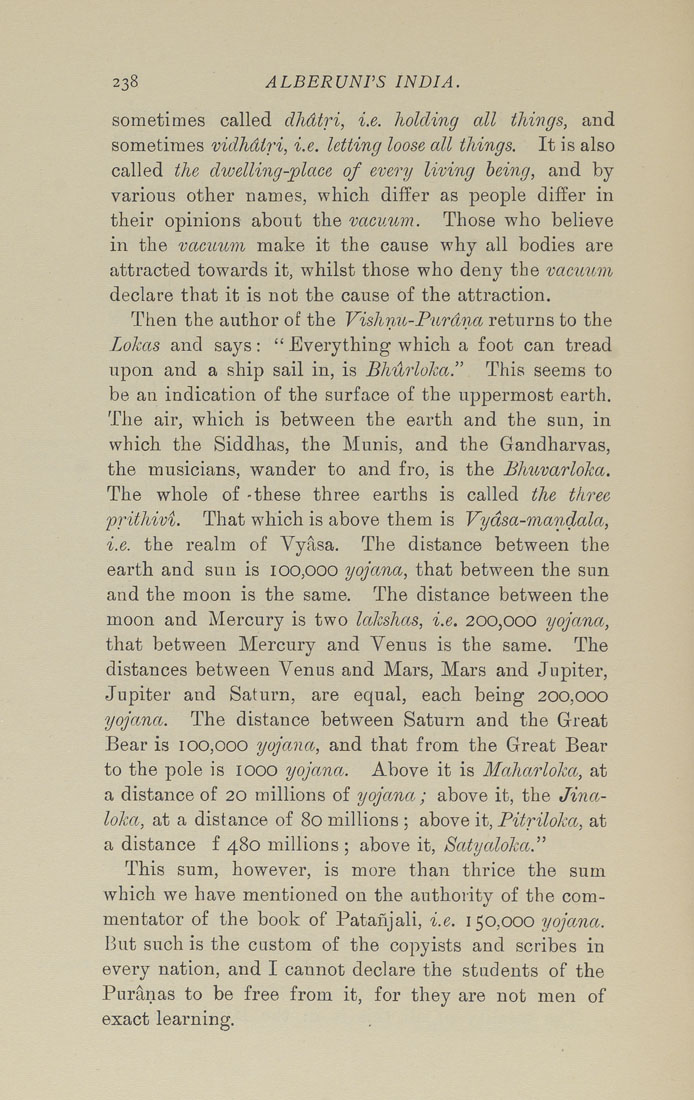238 ALBERUNPS INDIA.
sometimes called dhdtri, i.e. holding all things, and
sometimes vidhdtri, i.e. letting loose all things. It is also
called the dwelling-place of every living being, and by
various other names, which differ as people differ in
their opinions about the vacuum. Those who believe
in the vacuum make it the cause why all bodies are
attracted towards it, whilst those who deny the vacuum
declare that it is not the cause of the attraction.
Then the author of the Vishnu-Burdna returns to the
Lokas and says: "Everything which a foot can tread
upon and a ship sail in, is Bhilrloka." This seems to
be an indication of the surface of the uppermost earth.
The air, which is between the earth and the sun, in
which the Siddhas, the Munis, and the Gandharvas,
the musicians, wander to and fro, is the Bhuvarloka.
The whole of -these three earths is called the three
prithivi. That which is above them is Vydsa-mandala,
i.e. the realm of Vyasa. The distance between the
earth and sun is ioo,000 yojana, that between the sun
and the moon is the same. The distance between the
moon and iMercury is two lakshas, i.e. 200,000 yojctna,
that between Mercury and Venus is the same. The
distances between Venus and Mars, Mars and Jupiter,
Jupiter and Saturn, are equal, each being 200,000
yojana. The distance between Saturn and the Great
Bear is 100,000 yojana, and that from the Great Bear
to the pole is 1000 yojana. Above it is Maharloka, at
a distance of 20 millions of yojana ; above it, the Jina-
loka, at a distance of 80 millions ; above it, Bitriloka, at
a distance f 480 millions ; above it, Satyaloka.'^
This sum, however, is more than thrice the sum
which we have mentioned on the authority of the com¬
mentator of the book of Patanjali, i.e. 150,000 yojana.
But such is the custom of the copyists and scribes in
every nation, and I cannot declare the students of the
Puranas to be free from it, for they are not men of
exact learning.
|








